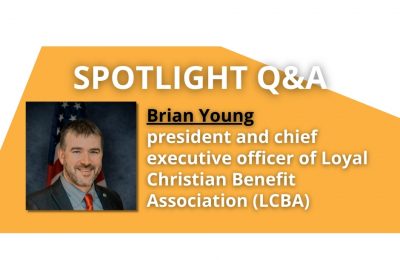 Lowman S. Henry is chairman and chief executive officer of the Lincoln Institute of Public Opinion Research, Inc., a nonprofit educational foundation based in Harrisburg. He is also host of the Lincoln Radio Journal, a weekly public affairs radio program syndicated on 79 Pennsylvania radio stations; and is host of American Radio Journal heard on 134 radio stations nationwide.
Lowman S. Henry is chairman and chief executive officer of the Lincoln Institute of Public Opinion Research, Inc., a nonprofit educational foundation based in Harrisburg. He is also host of the Lincoln Radio Journal, a weekly public affairs radio program syndicated on 79 Pennsylvania radio stations; and is host of American Radio Journal heard on 134 radio stations nationwide.
Governor Tom Wolf has been in office for just over a year, but already we know historians will put the words “budget crisis” in their lead paragraph. But a far more ominous phrase may get top billing: “constitutional crisis.”
Like his authoritarian counterpart in Washington, D.C., Governor Wolf is willing, and in fact, may prefer, to shred the constitutional separation of powers and enact by executive fiat that which the legislative branch is unwilling to do. The Commonwealth spent nearly ninth months without a completed state budget and that has spawned a growing debate over the limits of gubernatorial power.
Days before Christmas, the legislature again passed a state budget. At that time, Governor Wolf signed off on most of the spending plan but “blue lined” or line item vetoed about a third of the items thus extending the budget crisis. Three months later, there was little resolution in sight, but the administration spent money anyway. This, many lawmakers argue, is a clear violation of the state constitution.
The governor and his appointed state treasurer, Timothy Reese, argued there was a competing requirement for the state to keep certain agencies operating — especially those involved with ensuring public safety. But Treasurer Reese went far beyond that even authorizing a “loan” from the state treasury to House Democrats to pay their staff during the ongoing budget crisis.
The public safety argument is nothing more than a distraction from the main issue, which is can a governor spend taxpayer dollars without explicit authorization from the General Assembly? It is a clear violation of the state constitution and one which will explode into a full-blown crisis, especially if the governor’s illicit spending extends outside the realm of public safety.
The budget, however, is not the only area in which Governor Wolf is willing to trample on legislative powers. He is trying to shutter the Public Employees Retirement Commission (PERC), an obscure state agency that earned his ire when it disagreed with his view of the pension crisis. The agency was created by an act of the General Assembly and signed into law by a previous governor. Lawmakers have sued in court to block executive dissolution of PERC pointing out it would take legislative action to do so.
In early March, Governor Wolf again by-passed the General Assembly on the issue of the state’s minimum wage. The governor called for an increase in the state minimum wage, but the legislature refused to go along. So, he signed an executive order unilaterally raising the minimum wage paid to state employees to $10.15 per hour. The action applies only to state workers but will be extended to those companies doing business with the state. The minimum wage hike does not extend to private business.
However, the impact on small businesses will be significant. Neal Lesher, legislative director for the National Federation of Independent Business-Pennsylvania, points out that the governor’s executive order effectively prevents many small businesses from entering the bidding process for state contracts. “Some small businesses simply cannot afford to pay inexperienced, entry level workers that much more per hour,” Lesher explained. “This creates an unfair playing field that favors larger companies.”
Having fully bought into the Obama “pen and phone” style of governing, there is no indication Governor Wolf plans to return to a constitutional model any time soon. His “budget address” to the legislature in February was hostile and confrontational and had the effect of solidifying Republican opposition, which at times had shown signs of wavering.
It is clear crisis government is now the new normal in Harrisburg. On March 23, Governor Wolf finally buckled under pressure, saying he would allow the Republican-appropriations bill to become law without his signature. But with the deadline for adopting a budget for the next fiscal year less than two months away, the governor is content to act as if the legislative branch of government does not exist.
This time, legislators will not sit idly by and be consigned to irrelevance. If the governor continues on his current course, the constitutional crisis will explode into the courts, and possibly even lead to impeachment proceedings.
See the new CEO/CFO Soundoff Blog
CURRENT TOPIC: PRESERVING THE AMERICAN DREAM
Erie Molded Plastics’ Tom Tredway talks about the Employer to Employee education program














